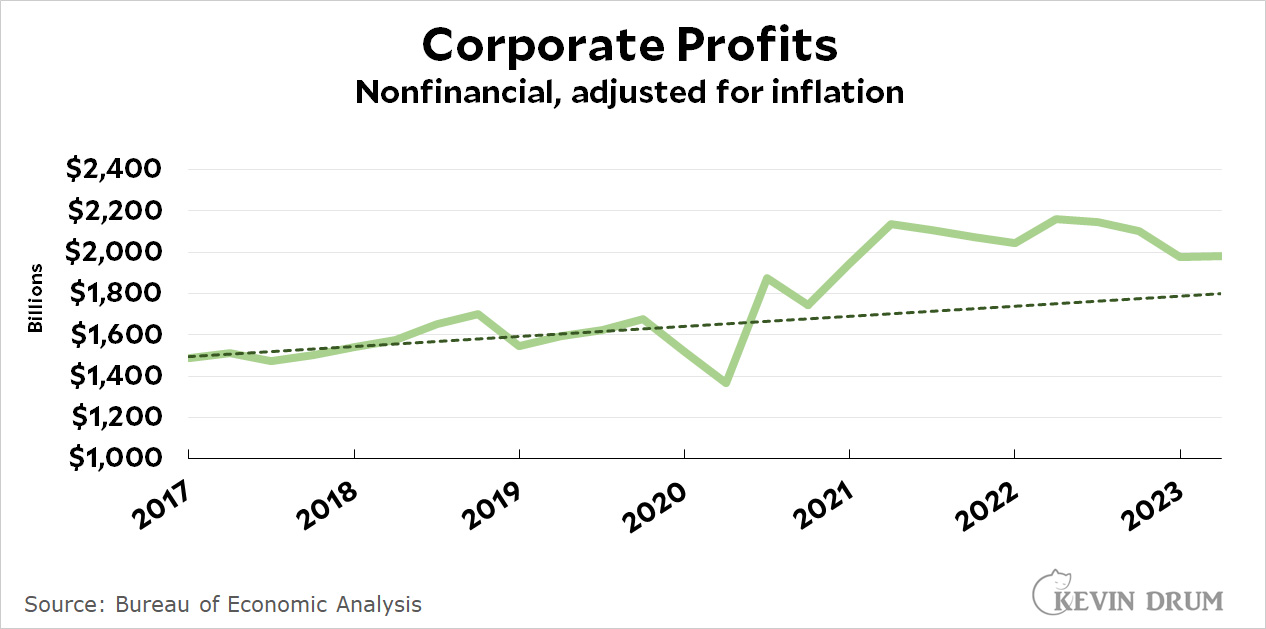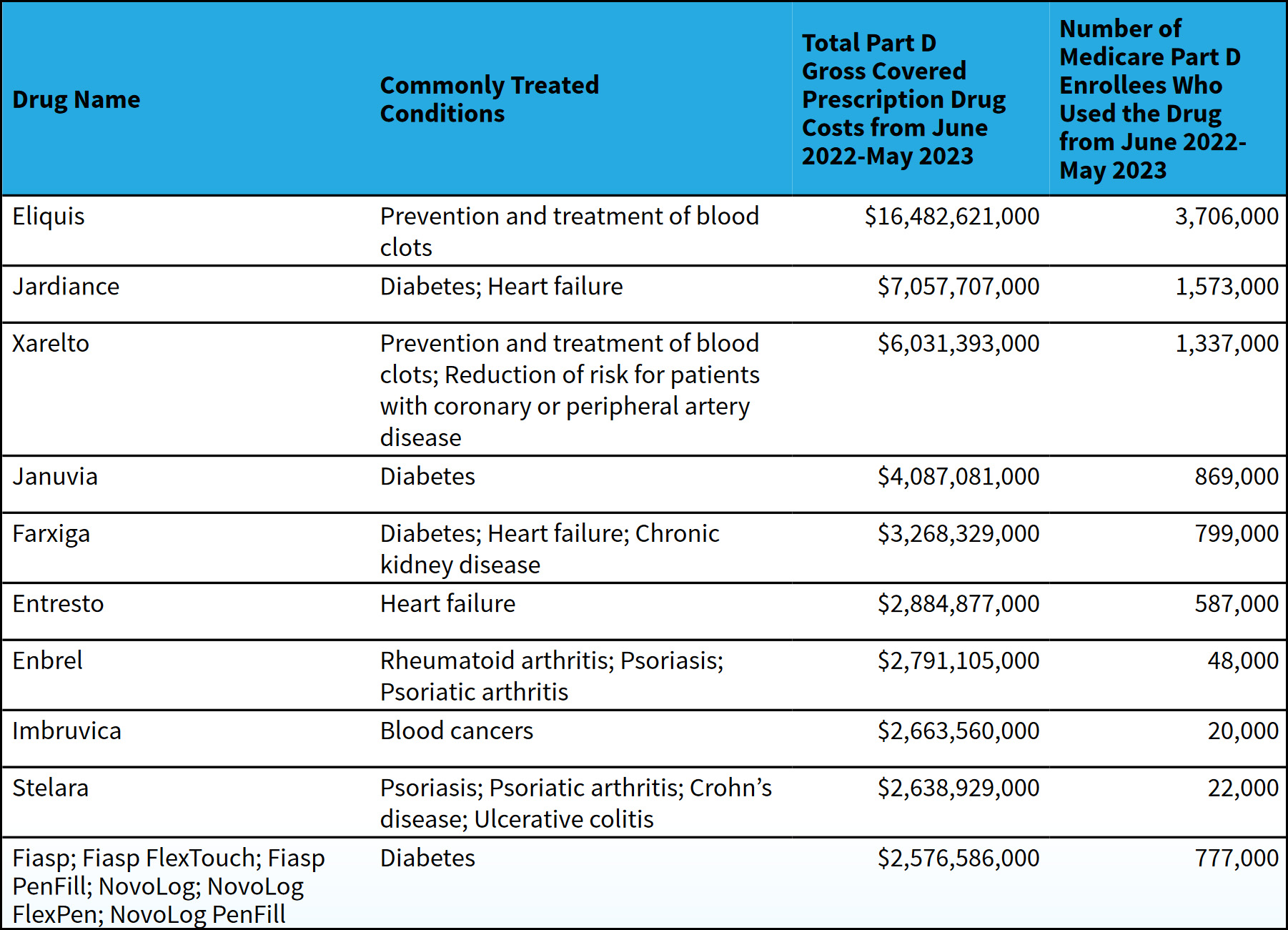This is the Southern California shoreline around Santa Monica near sunset. I took it out of the airplane window on our flight out of LAX to France last year.

Cats, charts, and politics

When Janet Protasiewicz ran for a seat on Wisconsin's Supreme Court, she campaigned on an explicit promise to reconsider the state's egregiously gerrymandered legislative map. Voters approved and swept her into office by a wide margin.
This gave Democrats a majority on the court, which means there's a chance of drawing fair districts after years of Republican abuse. Naturally this has infuriated Republicans in the legislature, who are now threatening to impeach Protasiewicz. This would be nothing more than blather except for one thing: Republicans hold a supermajority in the state Senate and might actually be able to pull it off.
How is it possible for Republicans to have such a huge majority in a state that elected a Democratic governor in 2018; voted for Joe Biden in 2020; and overwhelmingly chose a Democrat for the Supreme Court just a couple of months ago? That's easy: state Senate districts are wildly gerrymandered.
It's the circle of life. Gerrymandering gives you the power to keep everything gerrymandered. End the gerrymander, and you lose the power to gerrymander. Funny how that works.
A few weeks ago Rudy Giuliani entered a stipulation in a defamation case against him from two Georgia election workers. The stipulation stated that he had indeed said false things about them, but it was followed by a bizarre effort to claim that the stipulation didn't really mean he had said anything wrong. He was just doing it to save money. Or something.
Today a federal judge, tired of his antics, told Giuliani to pound sand:
The ruling by the judge, Beryl A. Howell in Federal District Court in Washington, means that the defamation case against Mr. Giuliani, a central figure in former President Donald J. Trump’s efforts to remain in power after his election loss, can proceed to trial on the narrow question of how much, if any, damages he will have to pay the plaintiffs in the case.
....Judge Howell’s decision to effectively skip the fact-finding stage of the defamation case and move straight to an assessment of damages came after a protracted struggle by Ms. Freeman and Ms. Moss to force Mr. Giuliani to turn over evidence they believed they deserved as part of the discovery process.
....“Donning a cloak of victimization may play well on a public stage to certain audiences, but in a court of law this performance has served only to subvert the normal process of discovery in a straightforward defamation case,” Judge Howell wrote.
The remedy for all of this, she added, was that Mr. Giuliani would have to pay nearly $90,000 in legal fees Ms. Freeman and Ms. Moss had incurred and would suffer a default judgment on the central issue of whether he had defamed the women.
I think it's safe to say Giuliani defamed the two election workers with extreme prejudice, and it's good to see that he's going to have to pay the piper for doing it. The MAGA clowns need to learn that they can't just say anything they want and not suffer any consequences for it. If you publicly claim that someone pulled thousands of votes out of a suitcase, it's libel unless they actually did pull thousands of votes out of a suitcase.
Which they didn't. They deserve whatever they end up getting from Giuliani.
Nonfinancial corporate profits remained elevated in Q2 but were flat compared to Q1:
 The pandemic turned out to be great for corporations, if for no one else, but the last few quarters have shown a slow decline since profits peaked in mid-2022. I wouldn't be surprised to see a further decline in Q3.
The pandemic turned out to be great for corporations, if for no one else, but the last few quarters have shown a slow decline since profits peaked in mid-2022. I wouldn't be surprised to see a further decline in Q3.
David Wallace-Wells is at the helm of Ezra Klein's podcast today and talks about "pandemic revisionism" with Katelyn Jetelin. It took them quite a while to get around to the topic of what worked and what didn't—thank God for transcripts!—and when we finally got there we were still left with no answers:
We know vaccination saved more than 3 million people in the United States. That’s a pretty easy analysis....But beyond that, we still do not know what works best to slow the spread of Covid-19 in terms of non-pharmaceutical interventions. For example, test and trace, or isolation, or quarantine, or indoor mask mandates, or closing venues. And this is very surprising to me because that means we still can’t answer important questions like you’re asking, like, their effectiveness or even more importantly, the trade offs.
We can see in the scientific literature that prolonged shelter in places are linked to, for example, harmful alcohol use. But how does that compare to uncontrolled viral transmission? We don’t know.
....How much masks reduced transmission in a population is not an answer we have. There’s been very few studies that have looked at this. And among the few studies, there’s a huge range, around 9 to 45 percent reduction in transmission with community masking. And this range means that these studies were done in different settings and different cultures. So many unanswered questions remain.
My own best guess is that test-and-trace is effective, but only if it can be done well. In the US it can't be. Indoor masking is moderately effective but probably a nonstarter in the US thanks to the mask truthers. Social distancing is effective. School closures aren't effective because of the health tradeoffs to keeping kids at home. Cleaning surfaces is not effective. Shelter-in-place is questionable. Border restrictions are pointless between countries with similar levels of infection. Banning large gatherings—theaters, churches, sports events—probably works well to minimize superspreader events. Plexiglass shields are ineffective and possibly even counterproductive. Improved ventilation is effective, but it's not clear how effective it is.
This doesn't leave much: just social distancing, cutting back on large gatherings, and indoor masking in places where health officials won't be lynched for suggesting it. What's worse, this is only a guess about what worked with COVID-19. A future virus with different characteristics might respond entirely differently.
This leaves me with my single biggest question: How much risk should we take with vaccines? They are by far the most effective response, so what should we do if we get to the point of mass production of a future vaccine before testing is complete? Go ahead and administer it if early results look good? Or bite the bullet and wait?
I've showed you St. Michael's Abbey before, shortly after it opened in 2021. Here it is again in a different view, framed by cactus and oak trees and lit up by the late afternoon sun.

Franklin Foer has written a book about the first two years of the Biden administration. Part of the book is about Biden's withdrawal from Afghanistan:
By the end of the U.S. withdrawal from Afghanistan in August 2021, President Joe Biden was sure he made the right decision after watching the events unfold in the Situation Room.
“Biden didn’t have time to voraciously consume the news, but he was well aware of the coverage, and it infuriated him. It did little to change his mind, though,” Franklin Foer writes in his upcoming book, an excerpt of which was released Tuesday....“So much of the commentary felt overheated to him. He said to an aide: ‘Either the press is losing its mind, or I am,’” Foer writes.
Biden can sleep easy: it was indeed the press that had lost its mind. In fact, it was one of the most egregious examples of bandwagon journalism in recent memory, a farrago of frenzied reporting that insisted on pasting the word chaotic into every story regardless of whether there was any real chaos to report. But reporters on the ground never seemed to acknowledge the obvious: somehow, amidst all this "chaos," the State Department and the military managed to steadily evacuate 6,000 American citizens and more than 100,000 Afghans with minimal loss of life. Under the circumstances, it was about as courageous and well executed an airlift as anybody could have reasonably expected.
And good for Biden for never giving in to the sniping. He was right to pull out and he was right to stick to his guns.
The Inflation Reduction Act was mostly a climate bill, but it also included a few other things. One of them was a provision that allows Medicare to start negotiating the price of prescription drugs instead of just paying whatever vendors feel like charging. Negotiations between buyer and seller are a standard part of market economies, so this makes total sense.
Medicare was allowed to choose ten drugs to start with, and today they announced what those would be:
 This is like a greatest hits list of the pharmaceutical commercials on my TV. Altogether it adds up to $50 billion in Medicare spending, which means the federal government can save upwards of $10 billion if it's able to negotiate even a 20% reduction in price. The new prices will go into effect in 2026.
This is like a greatest hits list of the pharmaceutical commercials on my TV. Altogether it adds up to $50 billion in Medicare spending, which means the federal government can save upwards of $10 billion if it's able to negotiate even a 20% reduction in price. The new prices will go into effect in 2026.
Multiple myeloma is in the news again:
House Majority Leader Steve Scalise (R-La.) announced Tuesday that he has a “very treatable” form of blood cancer and has begun treatment that will last the next several months.
“After a few days of not feeling like myself this past week, I had some blood work done,” Scalise said in a statement. “The results uncovered some irregularities and after undergoing additional tests, I was diagnosed with Multiple Myeloma, a very treatable blood cancer.”
Scalise is right: multiple myeloma is very treatable. I'm living proof of that, still going strong nine years after I was diagnosed. At the same time, Scalise should plan on skipping a few days of work later this year. MM is treatable, but the treatment can knock you on your ass.
July was not a good month for employment: Both job openings and hires dropped sharply yet again. Job openings were down 338,000 and hires were down 167,000:
In percentage terms, job openings were down 22% from a year ago and hires were down 9%. Hires are now below their mid-2018 level. Quits were also down, a continuing sign that workers are a little more worried about finding a new job if they leave their current one.